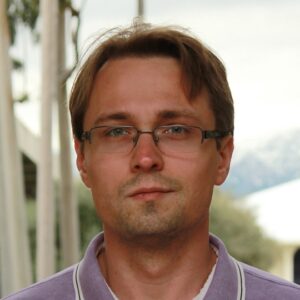Stochastic foundations for single-cell RNA sequencing
Single-cell RNA sequencing, which quantifies cell transcriptomes, has seen widespread adoption, accompanied by a proliferation of analytic methods. However, there has been relatively little systematic investigation of its best practices and their underlying assumptions, leading to challenges and discrepancies in analysis. I motivate a set of generic, principled strategies for modeling the biological and technical stochasticity in sequencing experiments, and use case studies to illustrate their prospects for the discovery and interpretation of biophysical kinetics.
Research links:
- Gennady Gorin: https://gennadygorin.github.io/
- Pachter lab: http://pachterlab.github.io/

Dr. Gennady Gorin is a chemical engineer working at the exciting intersection of bioinformatics, stochastic biophysics, and statistics. He completed his Ph.D. with Lior Pachter at the California Institute of Technology, adapting theory from fluorescence transcriptomics to the unique features of single-cell RNA sequencing. Prior, he completed a B.S./B.A. at Rice University and performed transcriptional modeling research in the Golding laboratory at Baylor College of Medicine. Gennady is transitioning to industrial bioinformatics, and excited about the prospects for rigorous, physics-informed methods in method development.
All Welcome! Note this event will take place on Zoom.
Date: Monday November 20, 2023
Time: 4:00-5:00PM
Click here to be added to our mail list.
For further information about this seminar series, contact tarnoldmages@bwh.harvard.edu
